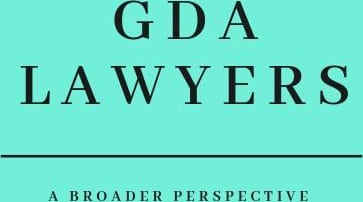
Mediation is a popular and well-recognised means of dispute resolution that is based on a principle of assisted negotiation. The Mediator Standards’ Board describes mediation as:
A process in which the participants, with the support of the mediator, identify issues, develop options, consider alternatives and make decisions about future actions and outcomes. The mediator acts as a third party to support participants to reach their own decision. Approval Standards November 2008.
Mediation offers an informal and more cost-effective means of resolving disputes. It avoids the need for expensive court preparations. It is a process that takes place at a time and location suitable to all parties involved and the mediator.
Mediation offers parties the opportunity to tailor the mediation process and the resolution of their dispute to suit their needs and circumstances. It is a private process with confidentiality being one of its core tenets.
Although every mediator has their own preferred model of mediation, some common features of mediation include:
- Joint sessions that provide an opportunity for the parties or their legal representatives to set out their interests/concerns to the other party or legal representative;
- Private sessions with the mediator to discuss possible agreements;
- Joint sessions to facilitate the making of offers;
- Recording of agreements reached; and
- If an agreement isn’t reached, assistance with narrowing issues between the parties, thereby reducing Court time and expense.
In Australia mediators are increasingly specifically trained professionals who are accredited after having complied with national training standards.
Our principal, Ghania Dib is a Nationally Accredited Mediator and has experience in mediating disputes across a range of issues. She is an Associate Mediator with the Institute of Specialist Dispute Resolution and on the Legal Aid Early Intervention Panel. Ghania is available to accept mediation briefs for both half-day and day long mediations.
At GDA Lawyers your safety is of importance to us. As such, our legal practice has been uniquely designed to facilitate mediations with separate entry and exit points being available for parties in instances where there are safety concerns. Ghania is also trained to recognise power imbalances between parties and to take steps to promote parties’ self-determination in the mediation.
Mediations may be conducted in person at our legal practice in Revesby or at any other location that is convenient to the parties involved. We also routinely conduct mediations over the telephone and on-line via ZOOM.
Please contact us today to inquire about Ghania’s availability for mediation.
Family Dispute Resolution (FDR)
It is a requirement of the Family Law Act that parties attend family dispute resolution with a registered family dispute resolution practitioner (FDRP) before applying to the Court for orders relating to children.
Family Dispute Resolution (FDR) is the name given to family law mediation. It is a practical way for separating families to resolve issues that come under the Family Law Act 1975, being issues relating to arrangements for children, parenting, property/assets and any other issues that may arise out of a divorce or separation.
Although the Family Law Act does not currently require FDR with regards to property matters, you are able to mediate both parenting and property/financial issues at the same time.
The FDRP is a trained, neutral person who is independent of the parties and helps people affected by separation or divorce to resolve some or all of their disputes with each other. An FDRP must have completed the requirements for registration with an organization that conducts the appropriate training required by the Federal Attorney General’s Department.
An FDRP will facilitate discussion between you and you ex-partner. An FDRP is neutral meaning that an FDRP will not take sides and will not give advice or make decisions for you. An FDRP will help you to identify the main issues you want to discuss with your ex-partner, explore options and assist you to reach voluntary and mutually agreeable resolutions.
To make the most out of FDR, you must be well prepared. To properly prepare for your FDR mediation we recommend that you obtain legal advice before attending FDR. At GDA Lawyers we can help you understand what your legal rights and responsibilities are. Legal advice will also help you to find out what your possible best and worst-case scenarios are if you cannot reach an agreement at FDR.
You are not able to apply for parenting order without first having obtained a certificate (known as a section 60I Certificate) from a registered FDR practitioner. A section 60I certificate indicates that the parties have attempted to resolve their dispute through family dispute resolution. The requirement to attend FDR applies even if you have pre-existing orders in relation to your child – meaning that you must attend FDR before you can make a new application for parenting orders.
There are certain exceptions to obtaining and filing a section 60I certificate. This includes the presence of urgency, abuse, family violence or the risk of one of those factors (section 60I(9) of the FLA).
At GDA Lawyers, our principal lawyer Ghania Dib is an accredited Family Dispute Resolution Practitioner and NMAS accredited mediator and is authorised to carry out both parenting and property mediations and to issue section 60I certificates.
Please contact us today to inquire about Ghania’s availability for FDR.
